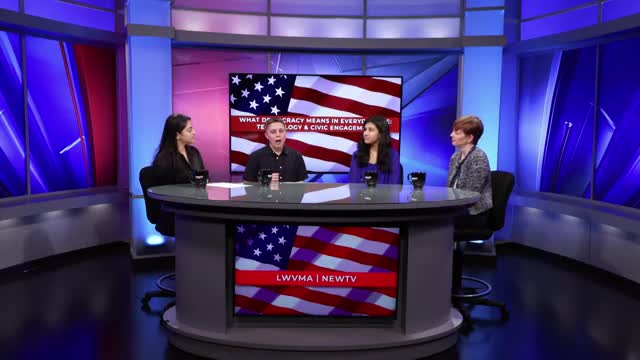Expert Advocates Media Literacy Education to Navigate AI Technology Challenges
July 25, 2025 | Newton City, Middlesex County, Massachusetts
This article was created by AI summarizing key points discussed. AI makes mistakes, so for full details and context, please refer to the video of the full meeting. Please report any errors so we can fix them. Report an error »

In a recent government meeting held in Newton City, Massachusetts, discussions centered on the intersection of democracy, civic engagement, and technology highlighted the pressing need for media literacy in today's digital age. Participants emphasized that many challenges associated with technology are not merely technical issues but stem from a lack of understanding among users.
One key point raised was the importance of educating both young and older generations about the limitations of large language models (LLMs), such as ChatGPT. It was noted that these models should not be treated as reliable sources of factual information, akin to search engines. For instance, while a user might expect accurate answers to simple queries, such as basic math or complex questions about climate change, the reality is that LLMs can produce incorrect responses. This underscores the necessity for a shift in how individuals interact with technology.
The meeting participants advocated for a robust civic education program that includes media literacy as a core component. They argued that teaching individuals how to critically assess information sources is essential to navigating the complexities of modern technology. This education is seen as vital to prevent misinformation from undermining democratic processes and civic engagement.
Additionally, the discussion touched on the role of organizations, including those associated with the "woke movement," in promoting media literacy initiatives. The consensus was clear: fostering a well-informed public is crucial for ensuring that technological advancements serve to enhance, rather than hinder, democratic values.
In conclusion, the meeting underscored the urgent need for comprehensive media literacy education as a means to empower citizens in the digital landscape. As technology continues to evolve, equipping individuals with the skills to discern credible information will be essential for maintaining an informed and engaged populace. The next steps involve developing educational programs that can effectively address these challenges and promote a more informed society.
One key point raised was the importance of educating both young and older generations about the limitations of large language models (LLMs), such as ChatGPT. It was noted that these models should not be treated as reliable sources of factual information, akin to search engines. For instance, while a user might expect accurate answers to simple queries, such as basic math or complex questions about climate change, the reality is that LLMs can produce incorrect responses. This underscores the necessity for a shift in how individuals interact with technology.
The meeting participants advocated for a robust civic education program that includes media literacy as a core component. They argued that teaching individuals how to critically assess information sources is essential to navigating the complexities of modern technology. This education is seen as vital to prevent misinformation from undermining democratic processes and civic engagement.
Additionally, the discussion touched on the role of organizations, including those associated with the "woke movement," in promoting media literacy initiatives. The consensus was clear: fostering a well-informed public is crucial for ensuring that technological advancements serve to enhance, rather than hinder, democratic values.
In conclusion, the meeting underscored the urgent need for comprehensive media literacy education as a means to empower citizens in the digital landscape. As technology continues to evolve, equipping individuals with the skills to discern credible information will be essential for maintaining an informed and engaged populace. The next steps involve developing educational programs that can effectively address these challenges and promote a more informed society.
View full meeting
This article is based on a recent meeting—watch the full video and explore the complete transcript for deeper insights into the discussion.
View full meeting
